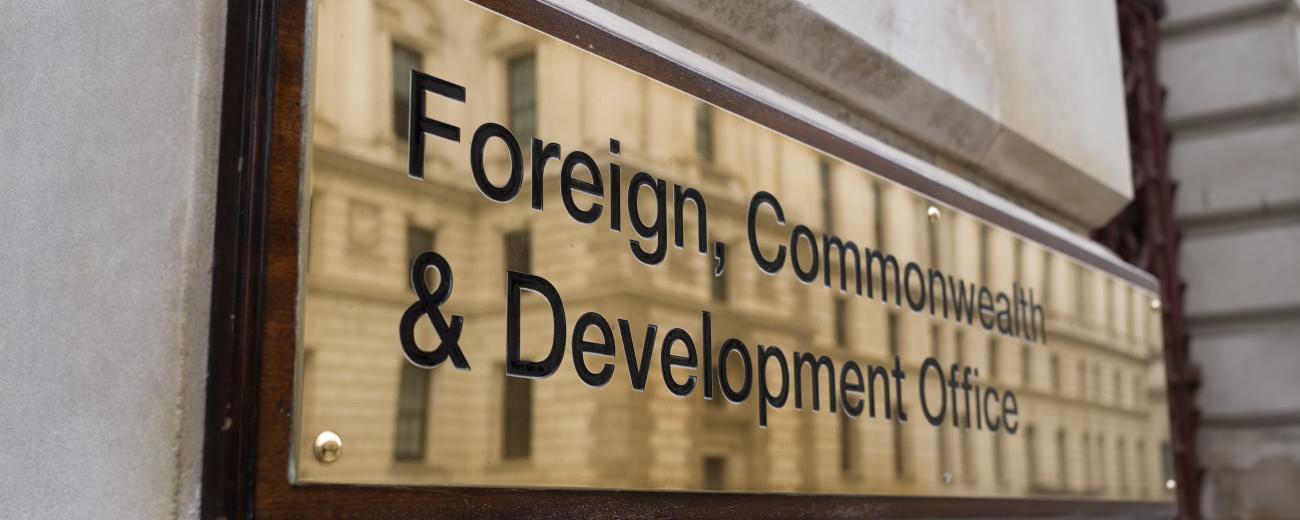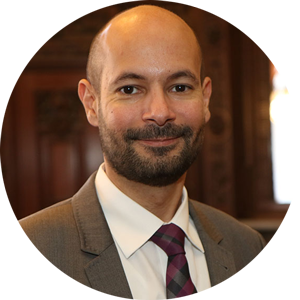Careers: "As a High Commissioner no two days are the same!"


Growing up in a multi-cultural family in the UAE, Omar Daair found himself constantly surrounded by people from different countries. This made him realise he wanted his future career to have an international focus. Despite choosing to study MSc Politics of the Middle East, most of Omar's career has focussed on Africa, including his current role as High Commissioner to Rwanda.
Could you give us a brief overview of your current role and what you do on a day-to-day basis?
As High Commissioner I am responsible for the whole of the UK Government effort in Rwanda. We have an extensive partnership across areas like education, climate change, migration and trade. As Rwanda is currently Chair-in-Office of the Commonwealth, we also discuss how to ensure that the organisation delivers as much as possible for its members. In addition, I am a non-resident Ambassador to Burundi, where our relationship is smaller but growing. I lead a team of around 65 across the two countries. Mostly, that's FCDO staff, but also includes people from the Home Office, HMRC and the Office of National Statistics.
What motivates you in your role?
I'm passionate about the continent of Africa, which is growing fast and has enormous potential for the future. I believe the UK can play a helpful supporting role as Africa builds its own prosperity, peace and stability. I am motivated by the results I've seen UK development programmes deliver, for example an access to education or supporting the most vulnerable. I feel incredibly privileged to be the face of my country abroad and enjoy getting the meet a diverse and interesting range of people. As a High Commissioner/Ambassador, no two days are the same!
Why did you choose to study MSc Politics of the Middle East at SOAS?
I grew up in a multi-cultural family in the UAE. I'd always been surrounded by people from many different countries and I knew I wanted to have an international angle to my future career. SOAS seemed the perfect place to pursue that, given its global reputation for excellence in the study of both the Middle East and Africa. I also like SOAS' reputation for thinking differently and for activism.
How do you feel that your studies at SOAS helped to prepare you for your current role?
Many of the big ideas we covered have been of direct relevance, despite my career having focussed on Africa rather than the Middle East. Questions of how you tackle ethnic divisions, get the right balance between state and society, or build functioning institutions were very valuable. I also benefited from the wisdom of an excellent lead Professor (Charles Tripp). Subsequently, I've found a great network of SOAS alumni across diplomacy and international organisations, which has been very helpful.
What did you enjoy the most about studying at SOAS? Do you have a particular favourite memory?
I most enjoyed the energy of the place. It really felt like a student body determined to make a positive difference in the world and unafraid to fight for what they believed in. I also made some great friends there and am now godfather to the daughter of one of my classmates.
What piece of advice would you give to someone looking to get into your field of work?
Be genuinely curious about how the world works. Read a lot, challenge your own thinking, and get involved. If you're trying to join the diplomatic service it is very helpful to show evidence of how you've engaged with issues and causes you care about. Not everyone can afford to volunteer overseas of things like that, but you can get international experience locally too, just think creatively about how you do it. I'd also recommend looking for people already in the field to talk to, both to get advice on how to get in, but also so you really understand what you'd be getting into. The alumni mentoring network is a good place to start.
What one piece of careers advice do you wish you'd had when you were at university?
Network! As a somewhat introverted person who always wanted my work to talk for itself, I learned this lesson later than I should have. I thought networking was something only Oxbridge public schoolboys did, or that working things behind the scenes was cheating. But actually, networking is vital. It's how you learn, how you hear of opportunities, and how senior people hear about you. And the majority of time people want to help if they can. Don't be shy, push yourself out there.
Share your alumni story
Once you graduate, you join a lifelong network of tens of thousands of SOAS Alumni spread across the world. We love hearing the amazing things that the community have been doing since graduating. Want to share your career story or advice? Fill in this form and we'll be touch.



